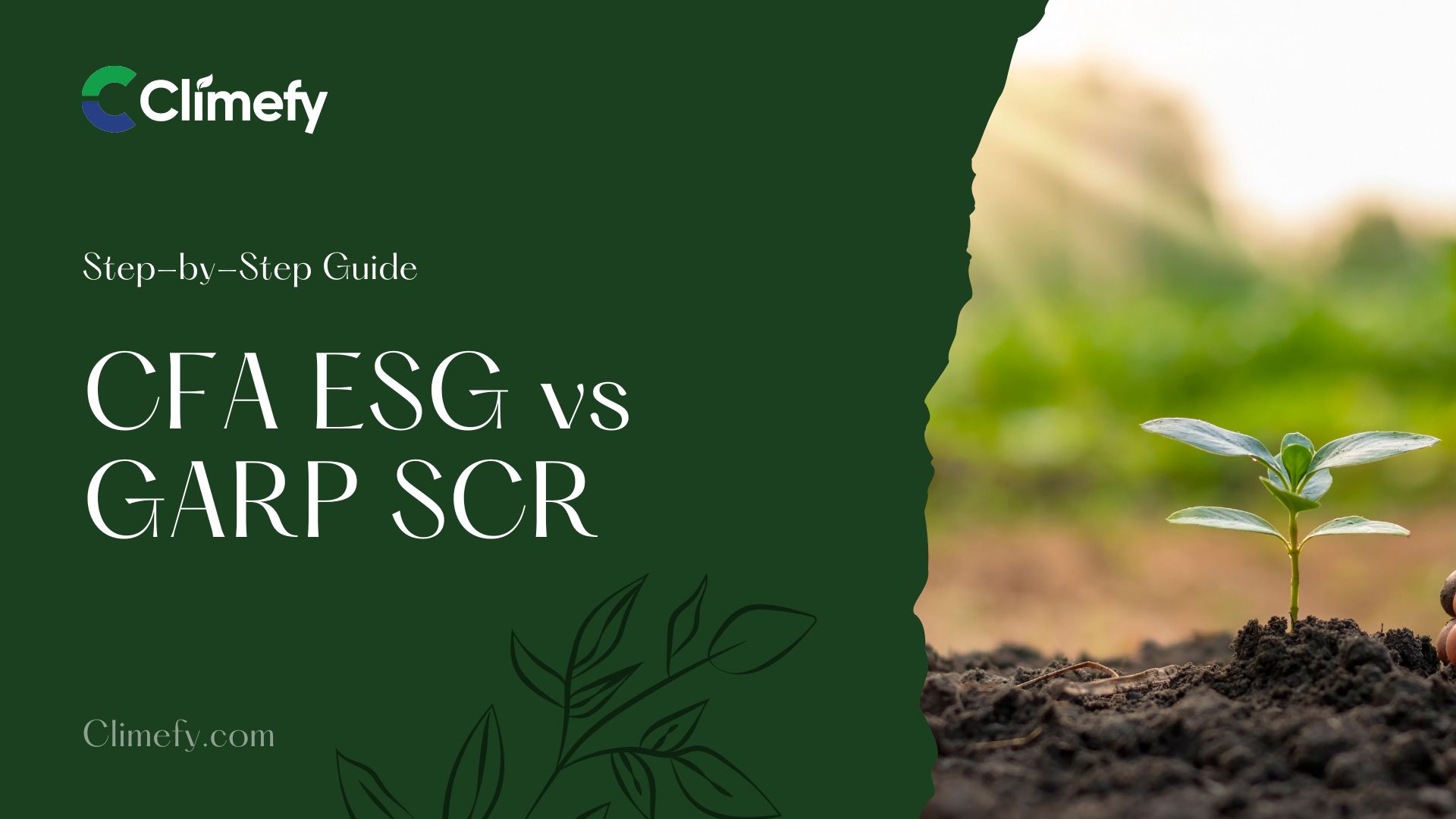
The growing emphasis on sustainable finance has led professionals to seek specialized certifications like the CFA ESG Investing and GARP Sustainability and Climate Risk (SCR) credentials. Both programs cater to finance and risk management professionals but differ in focus, curriculum, and career outcomes.
Key Takeaways:
✔ CFA ESG focuses on ESG integration in investment analysis.
✔ GARP SCR emphasizes climate risk management in financial sectors.
✔ Both certifications enhance career prospects in sustainability finance.
✔ Exam structures, costs, and prerequisites vary significantly.

The CFA Institute’s Certificate in ESG Investing and the GARP Sustainability and Climate Risk (SCR) Certificate are leading credentials for professionals in sustainable finance. Below is a detailed breakdown:
| Aspect | CFA ESG | GARP SCR |
|---|---|---|
| Primary Focus | ESG investing integration | Climate risk management |
| Exam Format | 100 multiple-choice questions | 80 multiple-choice questions |
| Duration | 2 hours 20 minutes | 3 hours |
| Pass Rate | ~70% | ~60% |
✔ Preferred by asset managers and investment firms.
✔ Enhances roles in ESG research and sustainable investing.
✔ Ideal for risk management and compliance professionals.
✔ Valued in banking, insurance, and regulatory bodies.
✔ You work in investment analysis or portfolio management.
✔ Your goal is ESG integration in financial decision-making.
✔ You specialize in risk management or climate policy.
✔ Your focus is regulatory compliance and disclosure frameworks.
Both the CFA ESG and GARP SCR certifications offer distinct advantages for professionals in sustainable finance. Your choice depends on career goals—investment roles favor CFA ESG, while risk management leans toward GARP SCR.
Disclaimer: Certification details may change; always verify with official providers.